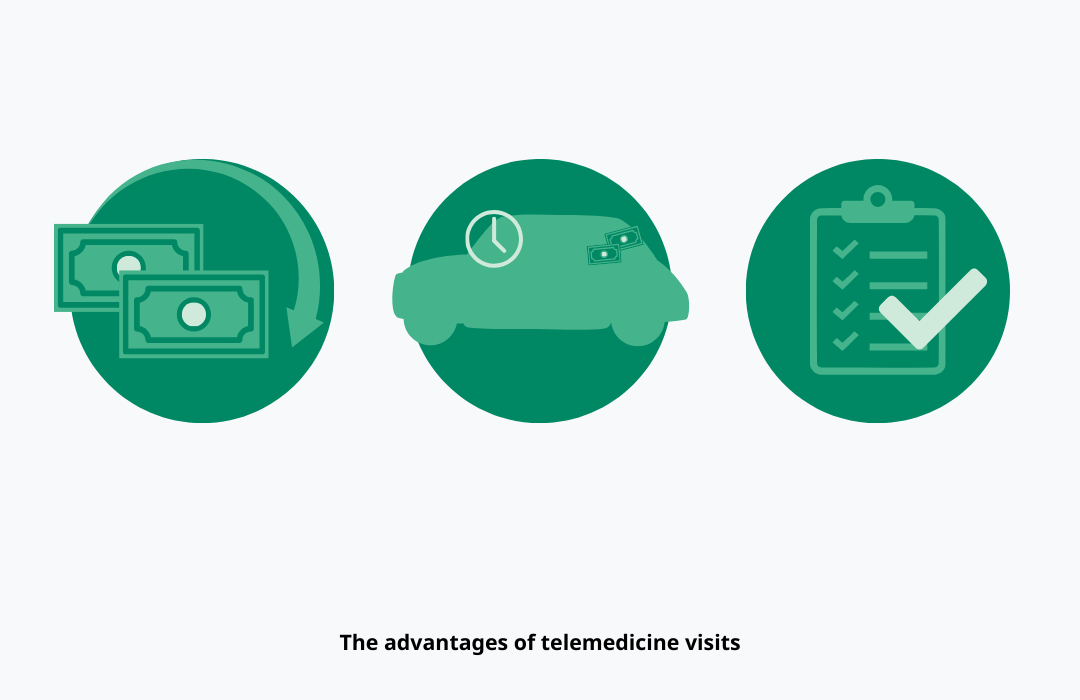QbCheck’s tech-forward care enhances clinician confidence for US virtual care provider
Legion Health is a telepsychiatry provider dedicated to transforming patient care through advanced technology. They leverage cutting-edge language models and robust data analytics to enhance patient-provider interactions and improve access to mental health services.
The virtual ADHD care provider takes pride in being data-driven and tech-forward. Part of their ethos is to integrate technology and AI throughout their processes for measurable outcomes. Legion Health’s founding clinical lead, Charlotte Coates, PMHNP-BC, says the company's tech-forward vision interested them in our objective ADHD test, leading to the integration of QbCheck company-wide. Let’s hear from her some of the benefits of integrating QbCheck into an ADHD clinical pathway.
Key takeaways
- With QbCheck, ADHD diagnoses can be made longitudinally over 2 visits, after a complete data review
- Following the adoption of QbCheck in 2023, Legion Health achieved 12x growth
- Patients in Legion Health's ADHD pathway have higher retention rates than their overall patient population
The challenge
Standardizing virtual ADHD diagnosis and boosting clinician confidence
Legion Health faced a common issue concerning ADHD care providers—ensuring confidence and objectivity in assessments. Telehealth testing has many benefits; however, there often is scrutiny around companies providing virtual ADHD care. The lack of formal, evidence-based guidelines for diagnosis, treatment, and management in a remote setting has led to more localized and ad hoc implementation of processes. In order to ensure efficiency in ADHD care, the need for quantifiable data and measurable outcomes arose.
“Confidence in ADHD diagnoses was our pain point. For anyone who isn’t from a clinical background (patients) the process was puzzling. There just wasn’t good, objective data.” - Charlotte Coates
Their previous approach led to inconsistencies in diagnosis and treatment, increased administrative burden, and potential delays in providing appropriate care. Additionally, clinicians were balancing patient expectations with clinical due diligence, leading to varied diagnostic timelines and approaches.
The solution
Integrating QbCheck to improve virtual ADHD diagnosis and treatment
Legion Health formalized QbCheck as a core component of its ADHD diagnosis and treatment process in late 2023.
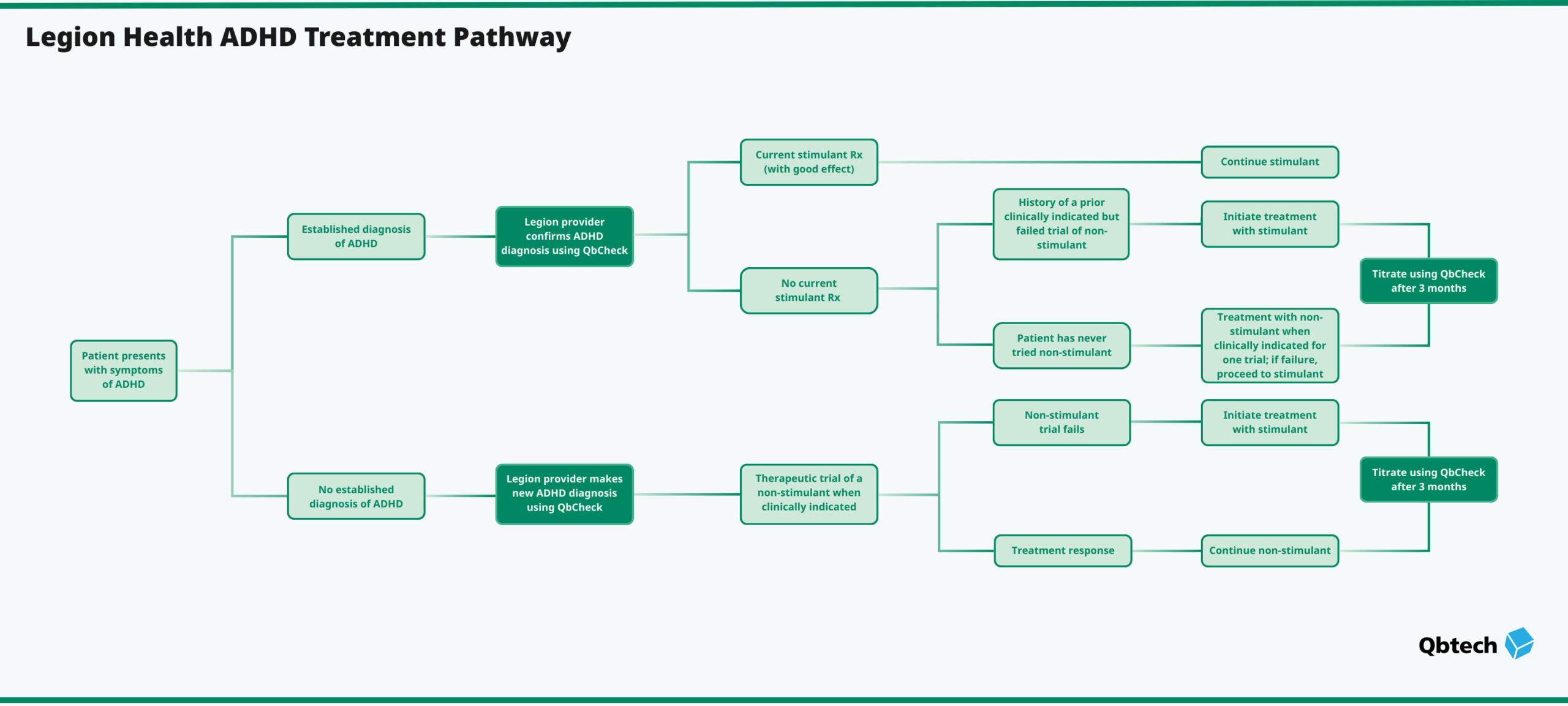
QbCheck’s integration had the following critical objectives:
Standardizing diagnosis with objective testing
Since ADHD assessments were left largely to the discretion of individual clinicians, resulting in varied approaches, the primary objective of QbCheck’s integration was to use objective data to standardize the diagnosis and treatment process across the board.
Decoupling ADHD testing and medication management
Clinicians in the past administered the test reactively–when they considered stimulant medication as possible treatment. They would rely on subjective measures and used QbCheck selectively when they suspected stimulant medication might be needed.
By using QbCheck as an independent, objective diagnostic tool, clinicians aimed to make diagnoses based on the complete range of clinical data rather than focusing solely on treatment outcomes.
“Before we implemented QbCheck in a structured way, we were leaving it up to our providers’ judgement, if and when they wanted to use the objective test. Most used it when they suspected stimulants to be a potential treatment path, which requires data-gathering and takes time. We, instead, wanted a formalized process where QbCheck aids in validating the diagnosis as a whole and is not just used in treatment follow up.”
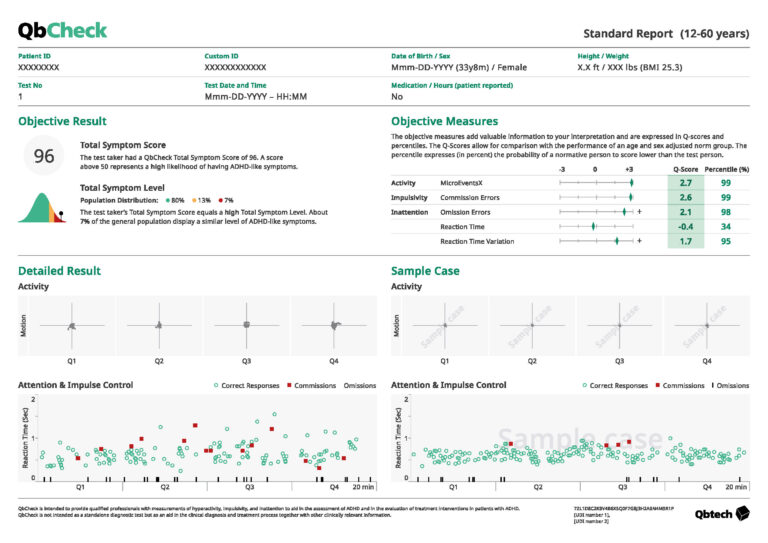
Enhancing clinical decision-making
Another key objective was to improve clinicians' confidence in decision making in a telehealth setting where direct observation and in-person interaction may be limited. The digital ADHD test’s integration was aimed at offering a holistic picture of patient symptoms compared to a control group, providing a sense of clarity and patient familiarity for the provider.
Improving patient experience
Offering patients a structured and easy-to-understand pathway, from initial evaluation to diagnosis and treatment, was a central objective when integrating objective testing to increase transparency and improve patient outcomes.
The result
A standardized care model that improves clinician confidence and empowers patients
“In our process to eliminate subjectivity in diagnoses and make our pathway more efficient and scalable, we started looking for quantifiable objective data that our clinicians can be really confident in. QbCheck offered a more solid pathway and reliable care options that providers are happy to lead with.”
Increased diagnostic confidence
Previous studies show digital ADHD technology helped increase clinician confidence by 77%. Providers found the standardized approach reduced administrative burden and allowed them to focus more on patient care rather than navigating inconsistent workflows. Another clinician on Charlotte's team mentions how QbCheck improved her confidence in clinical decision-making.
"In addition to the traditional subjective approach to diagnose ADHD, by utilizing QbCheck's objectivity, my level of confidence and decision making has significantly improved with regards to understanding patient's symptoms and initiating treatment modalities for newly diagnosed patients. The test is particularly valuable for those patients who are more complex and have other comorbidities." - Bridgett Gant, PMHNP-BC, FNP-C
Getting measurable outcomes using a clinically validated tool like QbCheck also supported Legion’s commitment to delivering technology-first care, ensuring patients' treatment plans are based on comprehensive, data-backed evaluations.
Reduced time to diagnose
Owing to the structured use of QbCheck, the ADHD diagnostic process at Legion was significantly expedited. Standardization of processes led to a reduction in time spent during data collection and ensured continuity of care for patients.
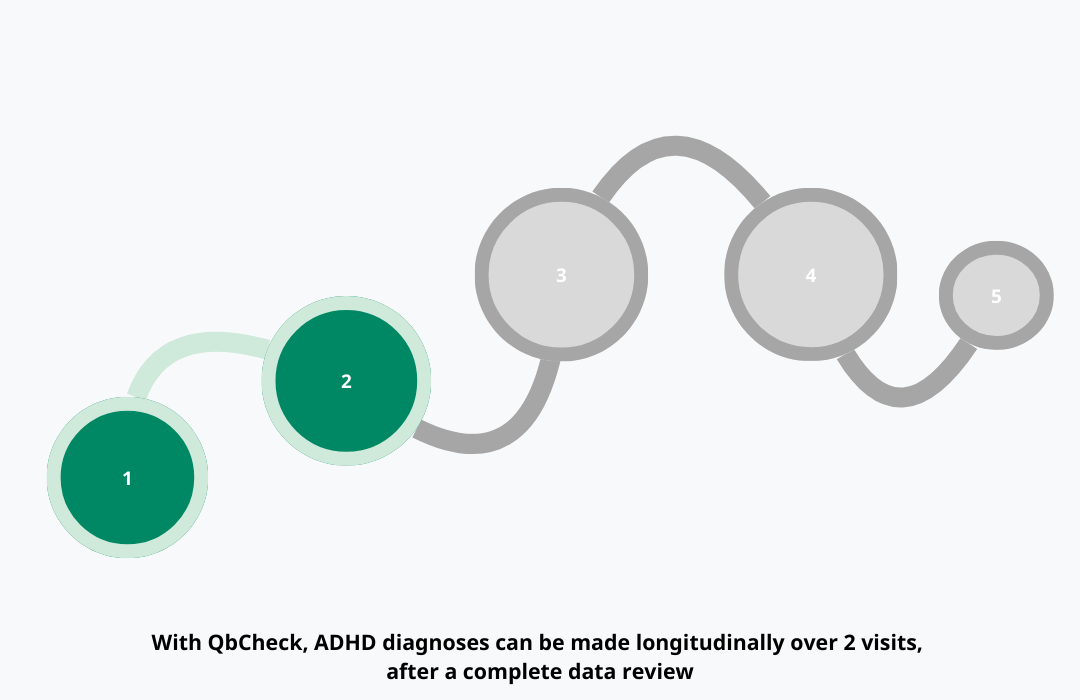
QbCheck integration helped enhance data-driven care at Legion Health. Providers were able to get real-time, quantifiable, and evidence-based objective data on the core symptoms of ADHD–inattention, hyperactivity, and impulsivity–enabling a swifter and more seamless diagnosis.
Improved scalability and consistency
QbCheck helped unify approaches across providers, leading to a scalable and consolidated clinical pathway. Research has shown that QbCheck helps scale ADHD virtual care providers. With the standardized data, patient outcomes became easier to track and compare, allowing providers to make tailor-made adjustments to treatment plans.
“Using evidence-based care needs a unified approach. When you have clinicians seeing multiple patients and using different approaches for ADHD care, it can get very confusing for patients. It is also not a scalable approach. With Qbtech’s technology it makes it easier to track patient outcomes and creates a stronger pathway. QbCheck’s pathway is inherently more scalable.”
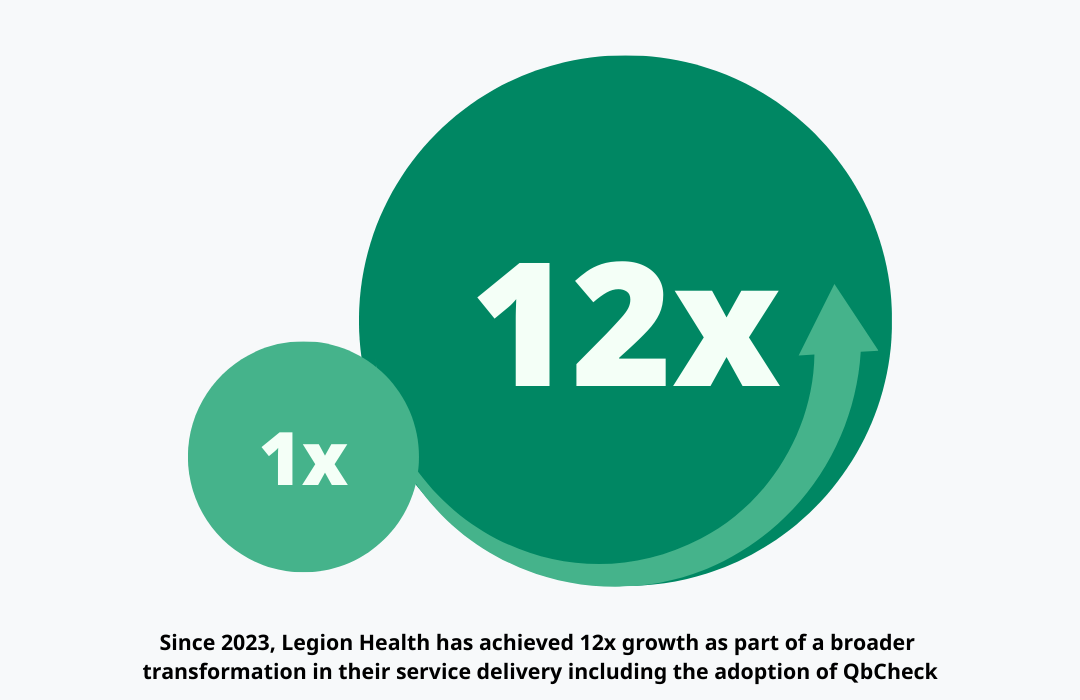
By implementing a system utilizing the remote testing solution, Legion Health was able to simplify the diagnostic and treatment pathway for its clinicians and patients.
Expanded access to ADHD care
For patients in rural or underserved communities, access to in-person care is difficult. Objective data, in such instances, empowers individuals and destigmatizes ADHD by rationally explaining behaviors through data. Remote testing, enabled by QbCheck, greatly expanded access to care for these individuals. It also became a tool for destigmatization and patient empowerment.
“Rural communities make up a majority of our patient population, where a lack of ADHD resources, accessibility, and provider shortage exists. The telehealth element (of QbCheck) allows these communities to receive specialized, data-driven ADHD assessments without having to travel far distances for reliable care.”
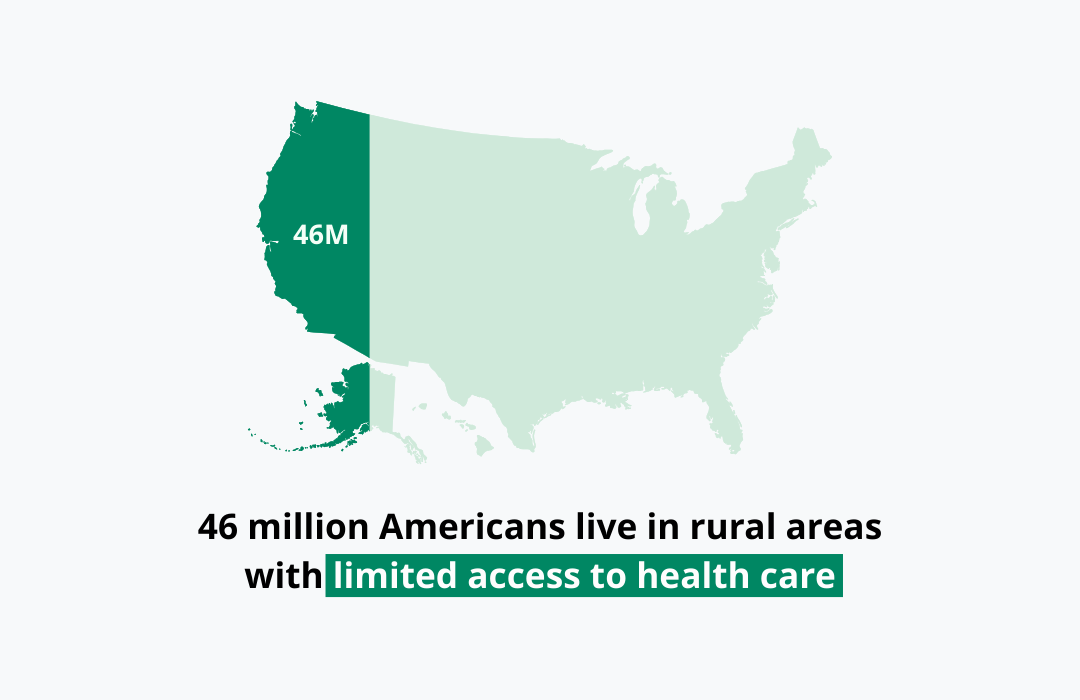
Telehealth ADHD testing with QbCheck helps reduce time for patients to access formal care and helps get the necessary care faster. In fact, parents and caregivers of patients with ADHD, and college students transitioning to independent healthcare management, greatly appreciated the time saved by virtual appointments, according to the clinicians at Legion Health.
Improved patient outcomes
QbCheck provided a robust, objective tool that empowered patients by offering clear, quantifiable data on their symptoms. The technology can pick up on symptoms with 1mm precision. Furthermore, interpreting a QbCheck test report is simple. When viewing their assessment results, presented in a clear visual report, patients reported having an improved understanding of symptoms, diagnosis, and treatment options, leading to less self-blame and a more positive outlook on ADHD.
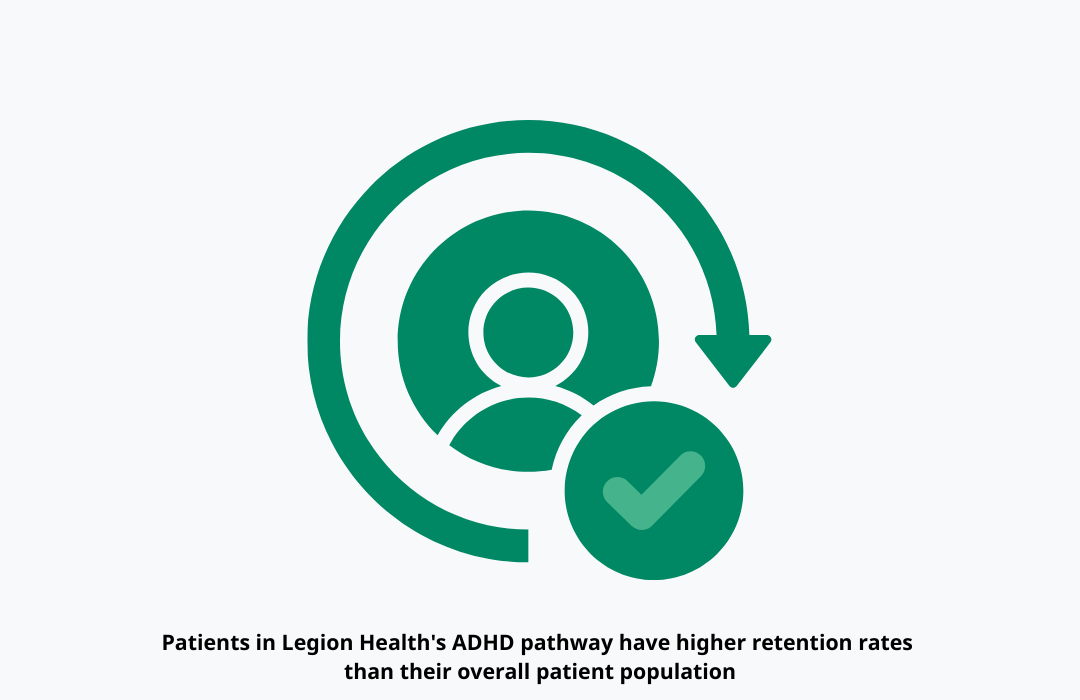
How virtual care empowered a patient to become an expert in his ADHD journey
Charlotte mentions how patient empowerment is at the core of Legion Health’s patient care pathway. With clear, objective, and reliable data, patients have a better understanding of their symptoms and behaviors. It makes them a co-pilot in their own ADHD care journey.
“I had a patient with a military background who never received a formal diagnosis. Despite trying to get assessed in the past, he was time and again told he didn’t meet diagnostic criteria as he showed no signs of hyperactivity. When he took a QbCheck, it immediately picked up correlating symptoms that made ADHD apparent. We were then able to sit down and have a meaningful conversation about symptom masking and other coping mechanisms being a part of his military training. The diagnostic journey, for that patient, was a self-learning experience and finally getting the care he’d been seeking for so long was extremely rewarding. For us as clinicians, it helped shed light on how to provide accurate care for others coming from similar backgrounds.”
